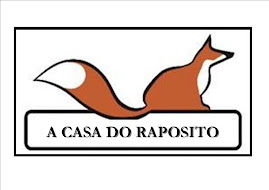
A Farewell to Banned Books Week 2009
In the United States, Anthony Comstock founded the New York Society for the Suppression of Vice in 1872. Using slogans such as “Morals, not art and literature,” he convinced Congress to pass a law, thereafter known as the “Comstock Law,” banning the mailing of materials found to be “lewd, indecent, filthy or obscene.” Comstock is estimated to have confiscated 120 tons of printed works. 3,500 people were prosecuted although only about 350 were convicted. Books banned included many classics: Chaucer’s Canterbury Tales (in which the Wife of Bath has walked the Camino de Santiago, The Arabian Nights, and Aristophanes’ Lysistrata. Contemporary authors whose works were subsequently censored under the Comstock Law include Ernest Hemingway, James Joyce, F. Scott Fitzgerald, Victor Hugo, D.H. Lawrence, John Steinbeck, Eugene O’Neill and many others whose works are now deemed to be classics of literature.
Paul Boyer, in Purity in Print: Book Censorship in America from the Gilded Age to the Computer Age, writes that the Comstock Law only formalized what had been a “gentleman’s agreement” among publishers, booksellers and librarians upholding a type of Victorian “code” of literary propriety. Nationally publicised trials over such novels as James Joyce’s Ulysses, began to erode this. Boyer says that the terrifying specter of the Nazi book-burnings in Germany in 1933 crystallised anti-censorship sentiment in the United States. So much so that within a short time after the book-burnings in Germany, the landmark federal court decision in United States v. One Book Called "Ulysses" clearing Ulysses broke the back of the Comstock Law.
Nevertheless perhaps with the increased interesting in Fundamentalism in the U.S. classic works such as Mark Twain’s The Adventures of Huckleberry Finn and John Steinbeck’s Of Mice and Men were among the top 10 most frequently challenged books from 1990 to 2000, according to the ALA’s Office for Intellectual Freedom. Of the 448recorded challenges in 2001 (down from 646 in 2000), the most often challenged were those in the Harry Potter series, for its focus on wizardry and magic and “Satanic influence.” Shel Silverstein’s delightful book of children’s poems A Light in the Attic was challenged in the 1980’s because it 'encourages children to break dishes so they won't have to dry them'.*
So as we stand today Pope Benedict may not approve of Peregrinos de la Herejía with its Gnostic content, but there is little he is likely to do about it while I could still be excommunicated by the American Book Banning Boys.
Funny Ole World, innit
* Parents Discretion Warning (with tongue firmly imbedded in cheek)
Could lead to the serious de-stabilisation of the "caregiver"/child hierarchical structure...
from A Light in the Attic, my second favourite book of poems for children of any age. My favourite is Silverstein's Where the Sidewalk Ends...
How not to dry the dishes
If you have to dry the dishes
(Such an awful boring chore)
If you have to dry the dishes
('Stead of going to the store)
If you have to dry the dishes
And you drop one on the floor-
Maybe they won't let you
Dry dishes anymore.
Shel Silverstein.
.




No comments:
Post a Comment